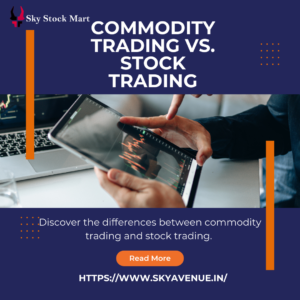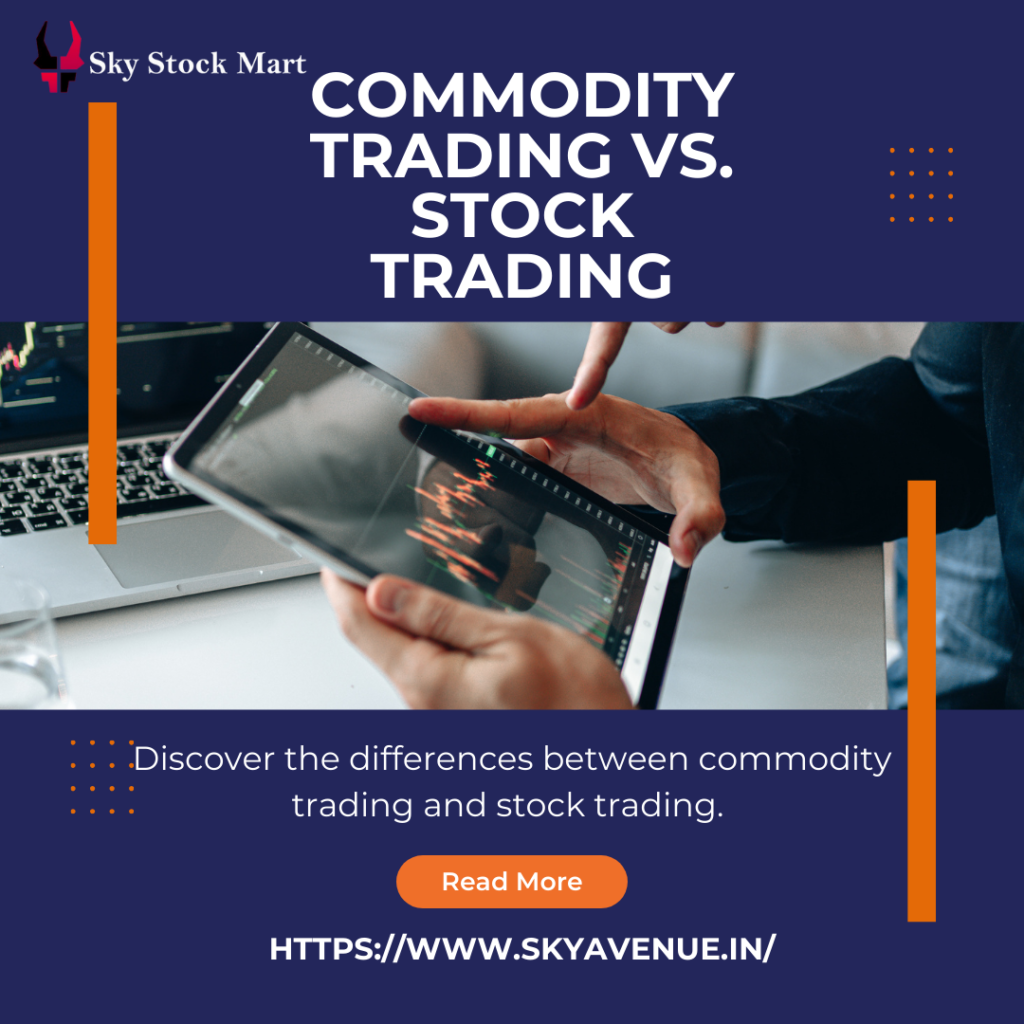Commodity Trading vs. Stock Trading: Which One is Right for You?
Introduction
Investing in financial markets offers a plethora of opportunities for individuals looking to grow their wealth. Two popular options in this realm are commodity trading and stock trading. Both involve buying and selling assets, but they have distinct characteristics, risk profiles, and potential rewards. To determine which avenue suits your financial goals and risk tolerance, it’s essential to understand the key differences between commodity trading and stock trading.
Commodity Trading: Unearthing the Basics
Commodity trading involves buying and selling raw materials or primary agricultural products, often referred to as commodities. These commodities can include metals like gold and silver, agricultural products such as wheat and soybeans, and energy resources like crude oil and natural gas. Here are some crucial aspects of commodity trading:
- Physical vs. Derivative Trading: Commodity trading can be done in two primary ways: physical and derivative trading. Physical trading involves buying and selling the actual commodity, whereas derivative trading involves contracts based on the future price of the commodity. Most retail traders engage in derivative trading due to its accessibility and liquidity.
- Market Volatility: Commodity markets are known for their volatility. Prices can be influenced by a multitude of factors, including weather conditions, geopolitical events, and supply and demand dynamics. This volatility can offer substantial profit opportunities but also carries significant risk.
- Diversification: Commodity trading can be a valuable addition to a diversified investment portfolio. Commodities often have low or negative correlations with other asset classes, like stocks and bonds, which can help spread risk.
OPEN FREE DEMAT ACCOUNT
Stock Trading: Navigating Equities
Stock trading, on the other hand, involves buying and selling shares of publicly-traded companies. When you purchase a stock, you’re essentially buying ownership in that company. Here are some key aspects of stock trading:
- Ownership and Dividends: When you own a stock, you have a claim on the company’s assets and earnings. Some stocks pay dividends, which are a portion of the company’s profits distributed to shareholders. This can provide a source of regular income for investors.
- Market Capitalization: Stocks vary widely in terms of market capitalization. You can invest in large-cap companies like Apple or small-cap companies with growth potential. Your choice will depend on your risk tolerance and investment objectives.
- Market Liquidity: Stock markets tend to be highly liquid, meaning you can buy and sell shares with relative ease. This liquidity can be advantageous for investors who value flexibility and quick access to their funds.
Difference Between NSE and BSE-How to Choose an Exchange for Your TradesNavigating the Complex World of the Stock Market-A Beginner’s Guide
Choosing Between Commodity and Stock Trading
To determine which trading avenue aligns with your financial goals and risk tolerance, consider the following factors:
- Risk Tolerance: Commodity trading is generally riskier due to the inherent volatility of commodity markets. Stock trading can also be volatile but may provide more stable options depending on the stocks you choose.
- Investment Horizon: Are you looking for short-term gains or long-term wealth accumulation? Commodity trading often attracts short-term traders, while stock trading can cater to both short and long-term strategies.
- Diversification: If you already have a diversified investment portfolio, adding commodities can enhance your diversification. However, if you’re seeking a more traditional investment approach, stocks might be a better fit.
- Market Knowledge: Both commodity and stock trading require a deep understanding of their respective markets. Consider your level of expertise and willingness to research and stay informed.

Conclusion
Commodity trading and stock trading are distinct paths to building wealth, each with its unique characteristics and risks. The right choice depends on your financial objectives, risk tolerance, and investment horizon. Some investors even choose to blend both approaches within their portfolios for a well-rounded investment strategy. Before diving into either world, it’s essential to educate yourself, consider your financial goals, and potentially seek advice from financial professionals. Ultimately, the key to success in either commodity or stock trading lies in diligent research, disciplined execution, and a well-thought-out investment plan.
OPEN FREE DEMAT ACCOUNT


